|
It’s early. It’s already poured. She’s on the sand at North Beach, and about to swim. The sun is just now breaking out from behind the yellow and black clouds that have been stacked in the eastern sky since dawn, swollen bruises dissipating into fine pinkening streaks. The air is still thick from the early rain, and now too dissipating in the breeze, that ever-present lift promising something soothing, its soft balm reaching the soul with its merciful cool. So often without cloud cover to temper the heat, something else has to. Two pelicans are fishing, flying fast against the wind and suddenly diving into the sea for its fruit. There are others here too at this early hour—in fact quite a few: solo swimmers; early-bird lovers walking along the watermark where sand is sea; kids who might have slept the night on the beach and who have just woken to this splendor; a granddad tugging lightly at his line in the water, teaching his grandson about fishing; a jogger running backwards; a man standing alone with his hands clasped behind his back as he watches the low lapping tide. One of the kids has walked into the ocean where there’s a sandbar close to shore, and he looks like he’s walking on water. Metaphor is everywhere, she thinks—the grand dramas of life at hand and underfoot in most every gesture, if you look closely. She leaves this afternoon, with no idea what comes next. For now, she’s the solitary woman who sits at the tideline facing the coming day, writing on the dampened pages of her notebook. Six red buoys bob in the surf to her south, and she remembers them from last time; she’s used them in her art, a photo piece about her broken heart and longing. She’s never told anyone how scared she is, probably because the fear is so strange that she can’t find the words. One buoy is much brighter than the others, maybe the oldest and lightened from the sun, or the newest and its colour still fully saturated. They flash against the cyan water, vibrant surprises that reveal themselves as the waves surge and fall. She gets in the water, and with shallow strokes moves over the sandbar, swimming away from shore toward the horizon where she’s been watching the coming of the day. She rolls onto her back, and with her limbs flung wide, floating, she’s half on top of the world and half beneath its surface. She opens her eyes, and past the tips of her toes she sees the darkening skies in the west, large clouds gathering fast in greys from smoke to ash, and she hears the boom and clap of thunder coming from inside them. She keeps an eye fixed on the west, watching for lightening while the eastern sun warms the top of her head as she floats. She flips over and paddles further. She gets out far, far enough to find herself in deep water; but the wonder she thinks, and that no one can see, is that her feet are still touching ground, her toes tucked into the fine soft sand, the rippled ocean floor slightly shifting shape as the waves roll around her above. Since arriving three weeks ago, this gentle exfoliant has removed the rough parts of her soles, healing other cracks and blemishes that have been part of her for so long too. As she comes back toward shore, she stands up and walks through the moving tide. She feels something under foot and reaches down for it. In her hand she holds a piece of oolite, a porous fossil-like thing, smooth and primitive at the same time. Made up of such things as minerals and coral and flint and clay. Some call it terrestrial detritus, which offers her some relief in her decision to claim it as her own, feeling like she’s rescuing something rejected, knowing she’ll love it with the tenderness one can have for the idea of home. She closes her fingers around this strange piece of soluble rock, but its misshapen form is slightly bigger than her palm, and so she can only cup it in an loose hold; and there, between her fingers, she notices two little mollusks nestled together inside a large pore that burrows into the center of this strange orb. They're both open. She comes back to land with the little piece of sand and sea in her hand--a solid imperfect globe, a small and perfect world for two.
0 Comments
(In French le coin means the neighbourhood, or the friendly and shortened the hood. In the context of Mount Pleasant and what's happening here, I couldn't think of a more apt play on words - especially since today is the St Jean, a big celebratory holiday in Quebec, where I lived in French for many years.) I live in Mount Pleasant, Vancouver. Technically, I'm on the eastern-most edge of the neighbourhood--an important distinction when talking about place in real estate terms, something Vancouver is all sexed up about. This is an edge area, one that's developing, to use the same neutered vernacular laid over other places such as Fuzhou, Chittagong, Dar es Salaam, Logos, and even Kabul, though likely here the term flows with less bite and more verve than for those on the ground in those places. Ah, but not here. The lived experience here is a mixed bag of ambivalence and profit, all depending on which bag you hold onto. Like everywhere and everything these days it seems, the Mount Pleasant that matters - ie: the one that counts, literally - is a consensus in the throes of unharnessed transformation, giddy about the promise of change like that offered by plastic surgery, smoothing the surface and sucking out the substance. So, here's a bit of what I notice as I peddle myself around the hood. And by peddle, I mean spinning the wheels of my bike with the muscles in my body. I live here and so do a whole bunch of other people ... ... people who make it the place that it is - unique, non-corporate, fun - for all of us living here ... ... not the place that some see as a place to rip apart and to sell ... Can't breathe?
Me neither. Dear Vancouver, I’m in Miami again, where all my family on my father’s side lives. Every time I’m here I love it, the pull of memory and family ties strong and calling. Now I’m thinking about moving, with my dual citizenship making it a real possibility. But I’m deeply Canadian, in some indescribable way, and this is a very American city. What does it all mean? Is there room for me? Room for how I live? For how I live in Vancouver? For those parts of how I live that I can’t give up? And just what is it that I can’t give up? 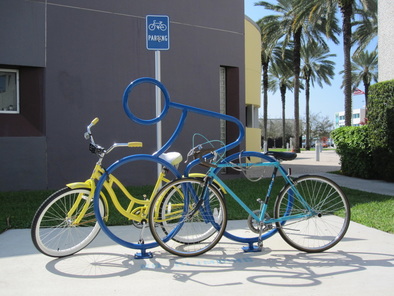 Biking—Maybe? Not! Doesn’t that look like a great bike lock-up? It’s beside MOCA; beside palm trees, under the sun. But here’s what it looks like curbside, a mere spin of the peddles away .... This is what bike-riding involves here—notice the sharrows symbol painted on the pavement in the traffic lane meant for sharing? Not so reassuring, let alone inviting, with that move accident vehicles from travel lanes signage right beside the sharrows symbol. And that bike you see on the sidewalk? The person riding it arrived there by sidewalk, not via the sharrow. Unlike Vancouver, there aren’t any bike paths running alongside traffic lanes anywhere that I've seen, and there are no designated bike routes nearby as alternates to busy thoroughfares either. Metro Miami, 6,000 square miles of land hugging the Atlantic coast with about 250 days of sunshine per year, an average temperature of 25ºC, and whose mean elevation is 6 ft above sea level—a bike-rider’s paradise, right? (Climate crisis/rising sea level issues, not glibly, set aside here.) A paradise for bike-riding someday perhaps, but the city and its car culture has a long way to go before being safe for riding in. So, hauling on raingear for Vancouver’s 168 days of rain per year isn’t looking quite as bad, with biking so central to the city’s commuting culture, and made so thanks to great bike routes and a growing consciousness among automobilists to share the road properly. Bussing it I love riding busses and taking in the scenery, especially in a new place where all is to discover; they’re also great for people-watching and a bit of a cultural soak, as well as, obviously, great for getting somewhere. Beautiful scenery, cool nods to important history, even the hopeful gesture of a bus bike-rack (being used!). So, a great place to ride the bus, right? But then there’s this …. 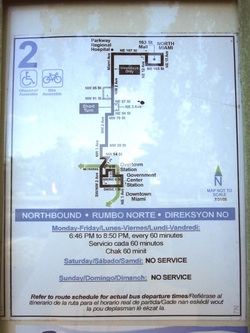 Service every 60 minutes Monday – Friday. NO service Saturday & Sunday. What, qué, sa?! This is a commuter route! This 15 km line (about the distance of YVR to downtown) runs north/south through many neighbourhoods on its way to downtown, intersecting with a dozen connecting routes running perpendicular. (Not the only line with really restricted hours.) This bus route is beside my aunt’s house and I use it when I’m visiting and have the leisure to plan things out around this strange schedule, but what if I lived here and needed to rely on this bus as part of my daily life? Walking 250 days of tropical sunshine, in a flat land. Walking just makes sense, and beckons. What’s there not to like? But then there’s this: no sidewalks ..... There are plenty of neighbourhoods without sidewalks, and there must be plenty with them too (not where I walked, but there must be.) What about people in wheelchairs, and with strollers? Driving, Driving, Driving Last year, I rode my cousin’s bike (only for little neighbourhood jaunts on side streets) and took the bus everywhere. This year the bike’s broken, and I have my aunt’s car. (I don’t own a car in Vancouver so driving is always novel for me.) With public transit servicing only around 8% of the population, here’s what getting around in a car looks like. You get my drift. 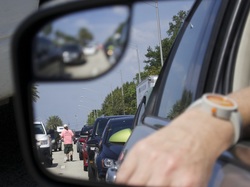 I see this a lot too—people walking between canyons of stopped cars, fund-raising for school, selling and advertising things. This man’s t-shirt says: accident, crash, slip or falls 1-800-need-help. I close my eyes, alone in an idling car. What does it mean? For me? The combination of no sidewalks, bad transit, and terrifying biking, forces people into cars—the antithesis of community. So, when out on foot navigating scrappy boulevards under heavenly canopies of sun and palm and birdsong, I’m the only one out walking. And because I’m the only one out on foot, when another walker once appeared, here’s what happened to me: a sense of wariness crept in. Instead of feeling any connection to this fellow pedestrian, instead of readying to nod and say hello, I froze, noticing how alone I was on a street that suddenly felt deserted and secluded—the antithesis of community. So, Vancouver, despite your average of 197 days of rain per year, you make getting around easy. Whether I want to walk, take transit or ride my bike, I can get to where I’m going, feeling invited and considered, and connected. Community-making requires not just the desire to be a part of something, it requires the supports that bring people together. The best place to start is where we live, right outside our front doors, in our neighbourhoods (neighborhoods), with the roads and transportation systems available and ready for us to jump on so we can all jump in. Miami—try it, you’ll like it. Till then, I think I’m staying where it’s easier to live the way I do—in motion in community, in Vancouver. I've started volunteering with the awesome Vancouver Public Space Network, writing blogs. Here's my first one .... (also on the VPSN website). NB: Not included in the VPSN blog piece is this: It's really hard for me to declare any kind of allegiance to Vancouver over Miami,
even in the face of the challenges I face getting around there on my own steam. So, while everything I say here about Miami is true, it's also true that Vancouver isn't for me. It's a good reminder to us all about the performative in the declarative. It's also a good reminder about the irrational nature of love. A few days later, when the 2nd one appeared, I wanted a different outcome; so I kept reading, and it rested at my headboard through the night. In the morning, it was still there and I wondered if it was dead. But when I checked on it after my tea, I saw it was gone.
Next, I found a wasp nest in my loft. Still small, it had been abandoned before completion, and never inhabited. A wasp nest is made of paper. Wasps chew wood and plant fibres to produce the material they use to make their nest. It's a remarkable feat of ingenuity, creativity, and beauty. So the wasps, creators of paper, makers of delicate and clever homes, eschewed nesting here. I think they have a point. I'm at my YVR gate. I'm leaving for Miami, my first time back since my father's memorial in April 1991 after he took his own life. He was 64. I was 29. Ten months later my mother would take her's, but I didn't know that yet, not then.
|
authorzoe welch Categories
All
November 2022
|
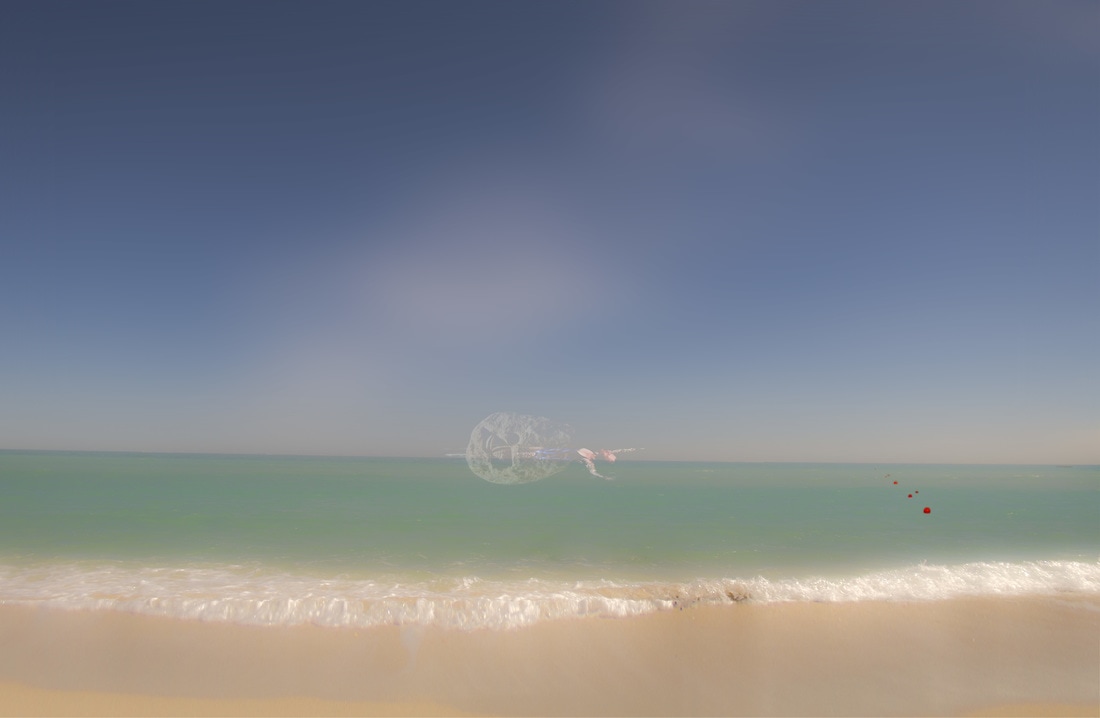
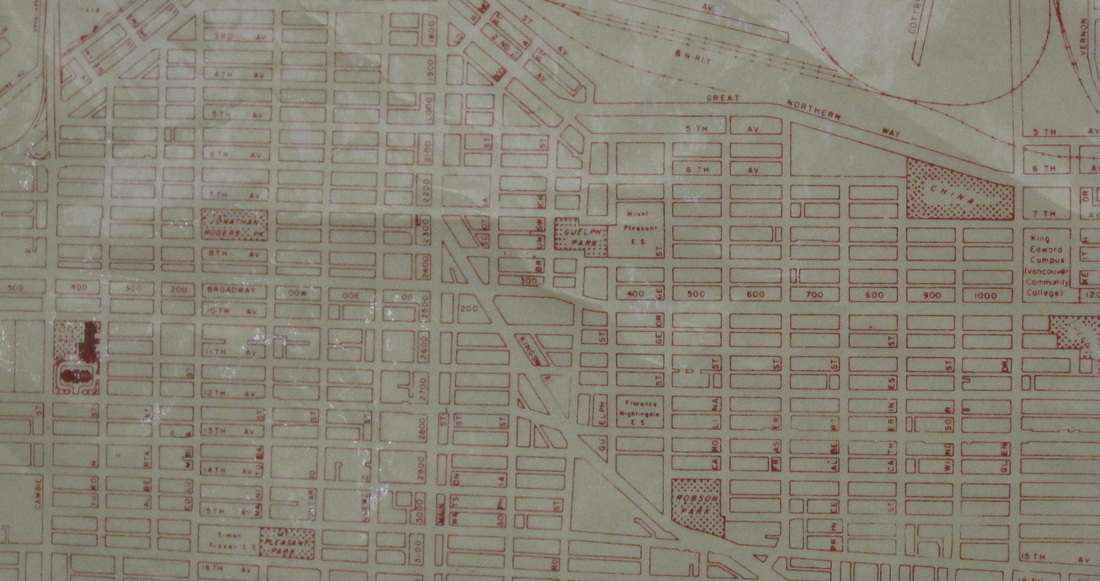
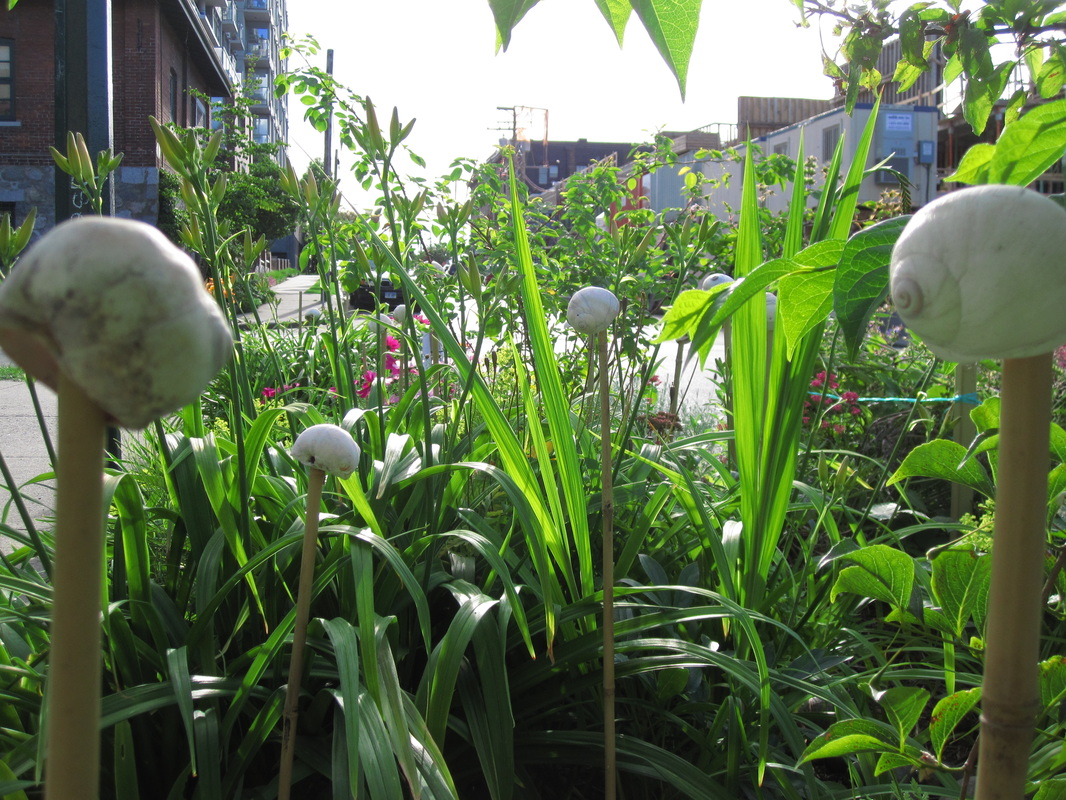
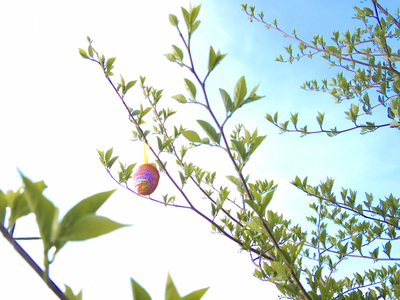
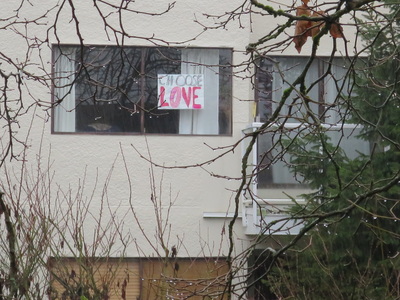
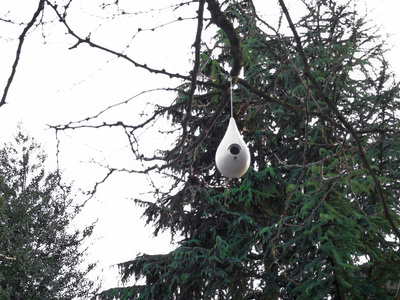
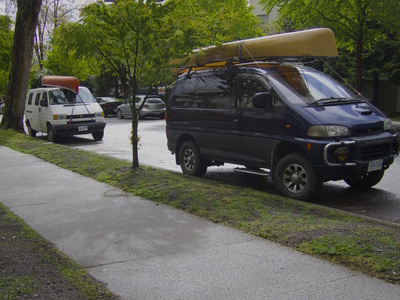
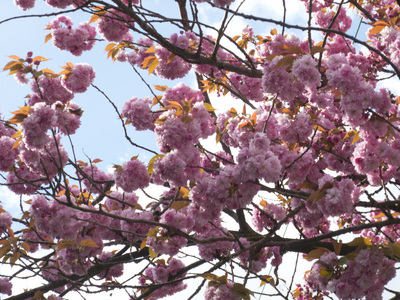
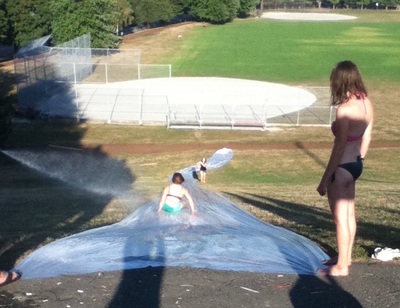
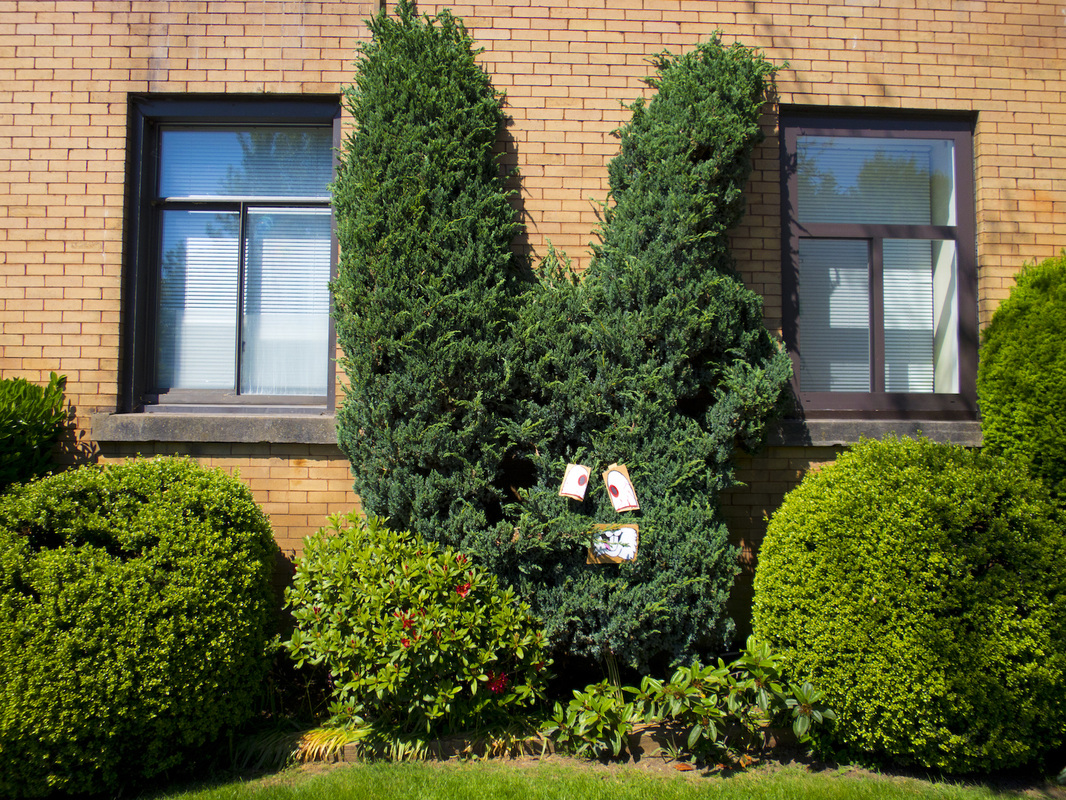
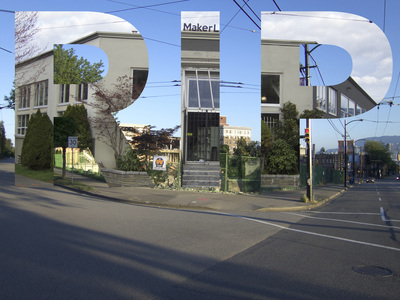
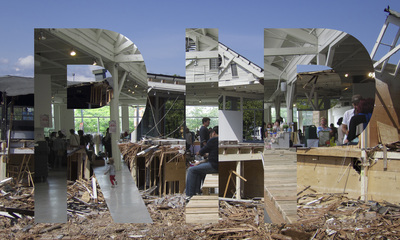
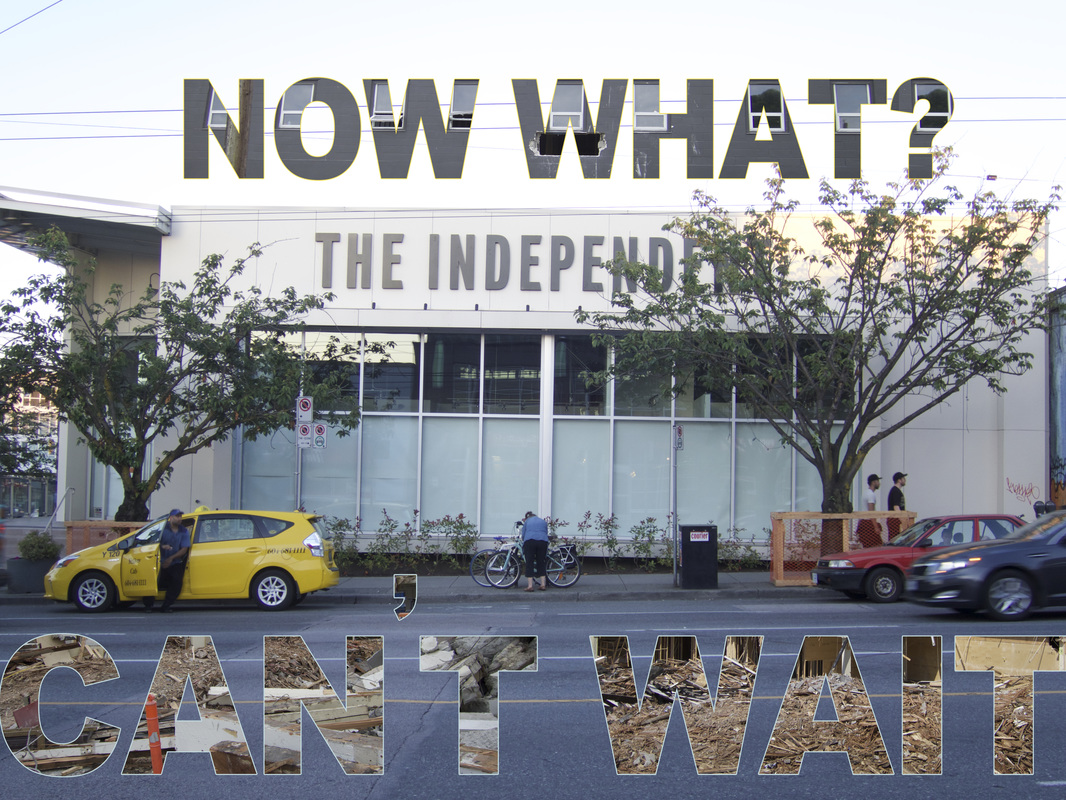
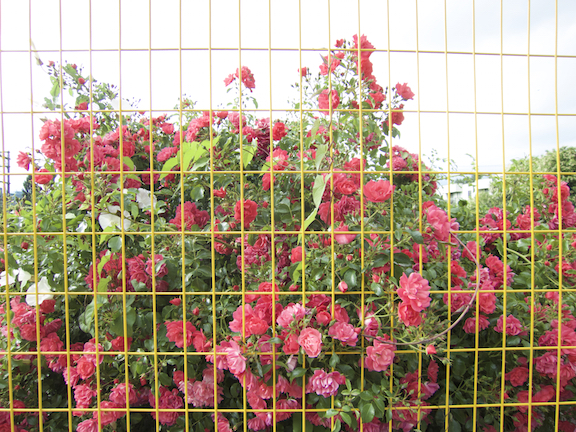
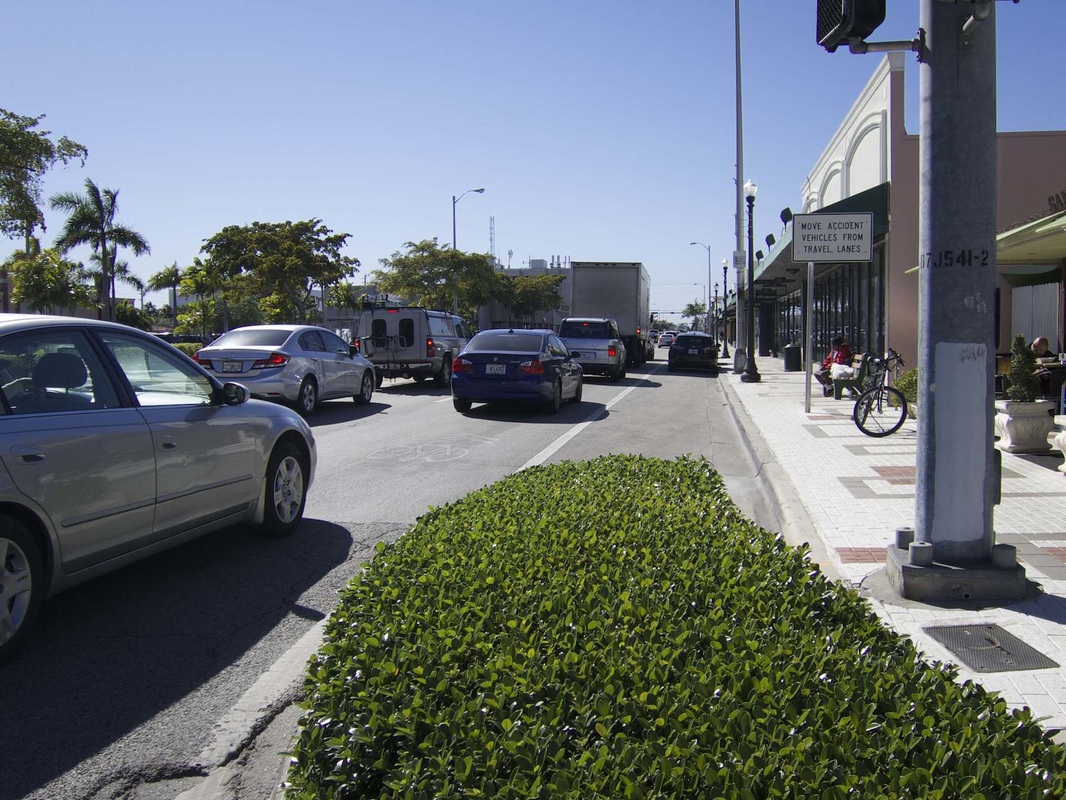
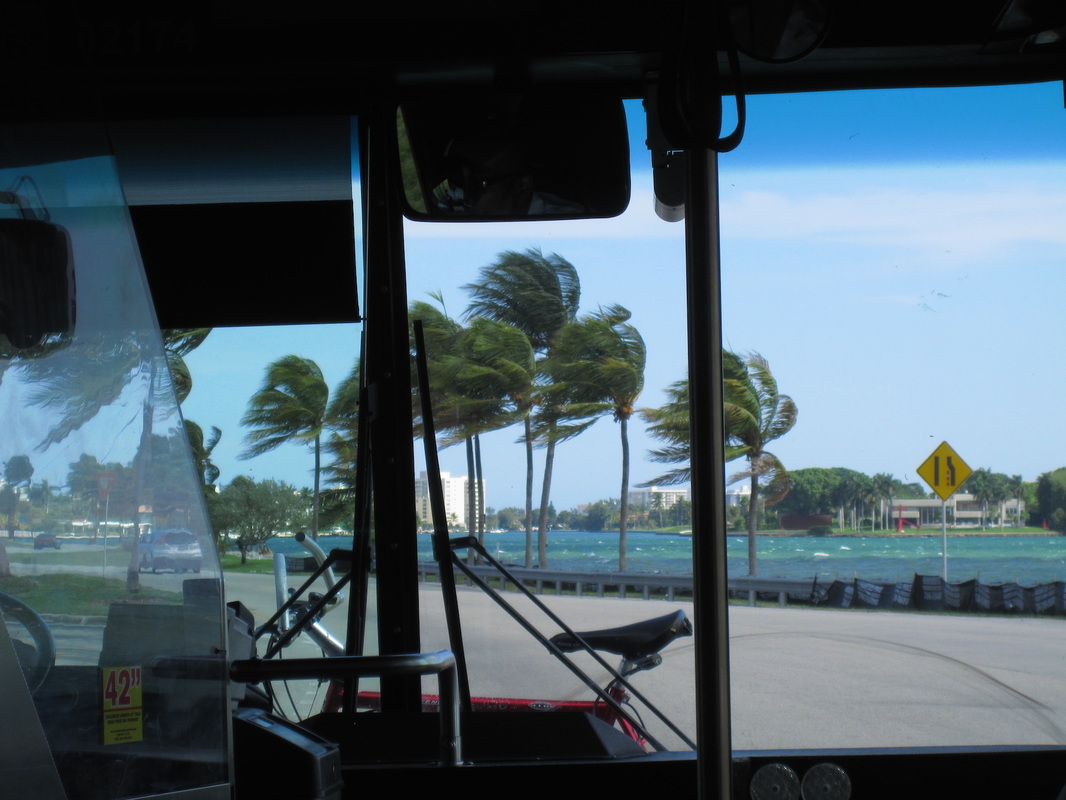
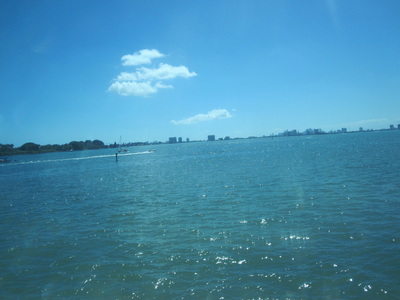
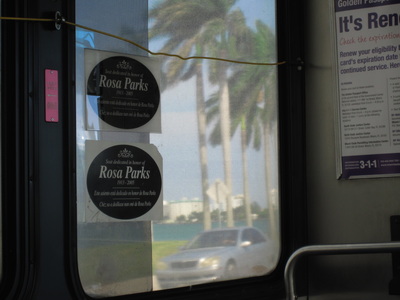
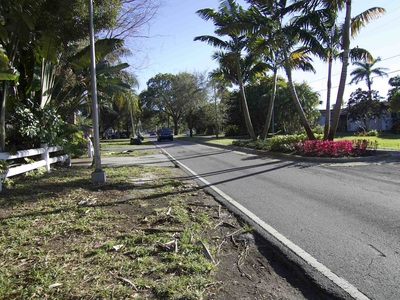
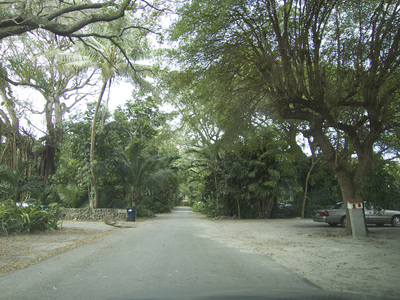
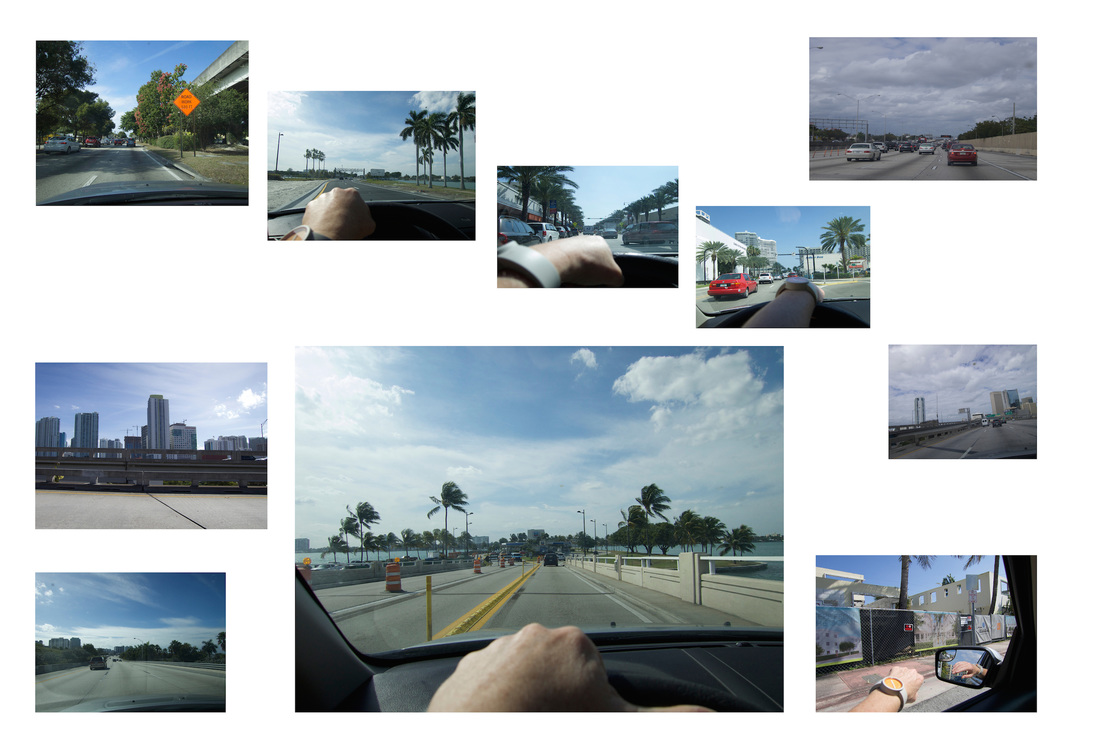
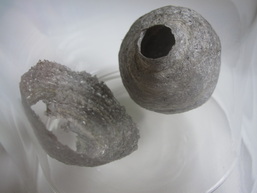
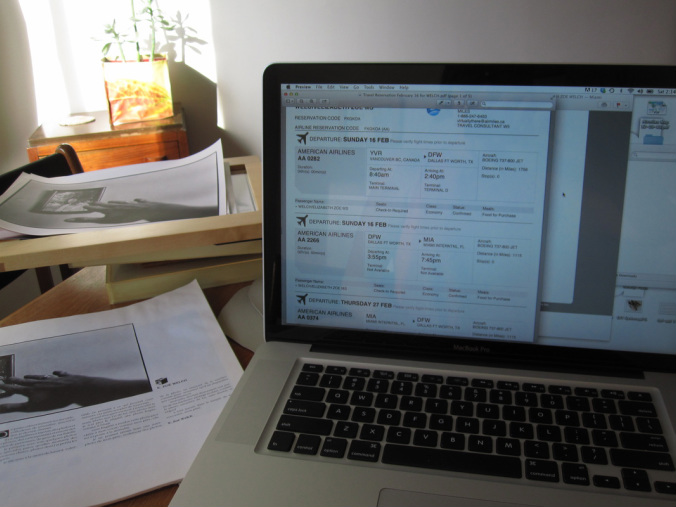
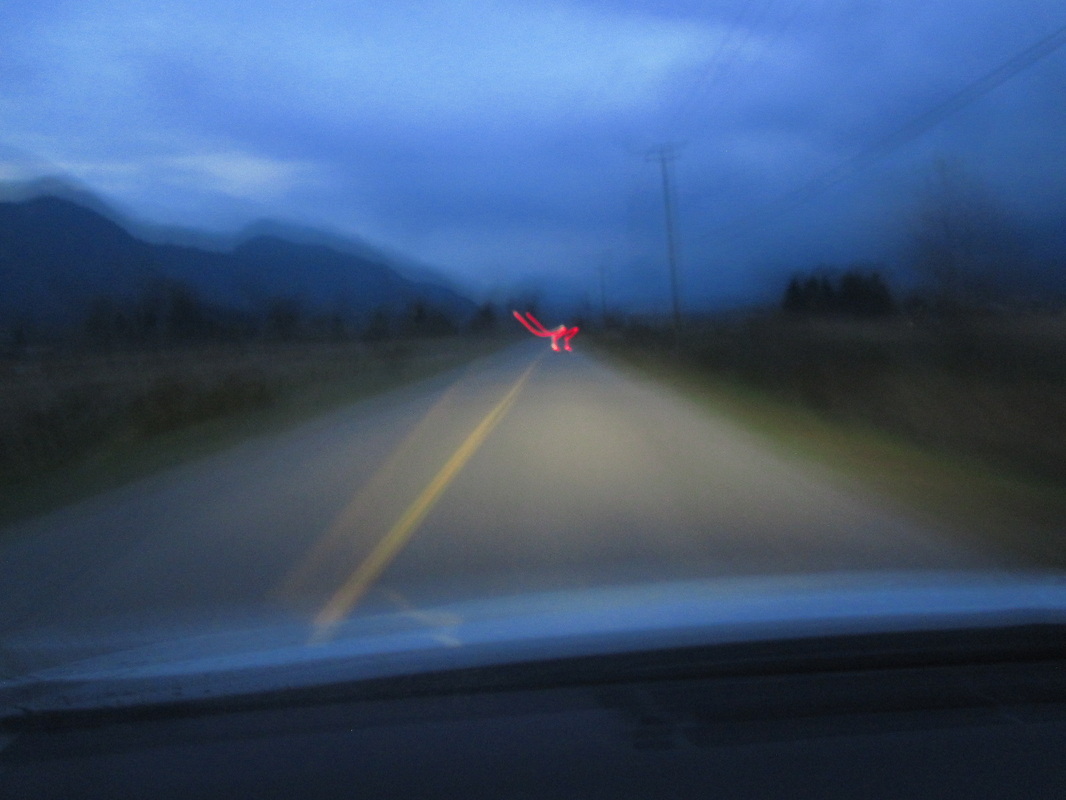
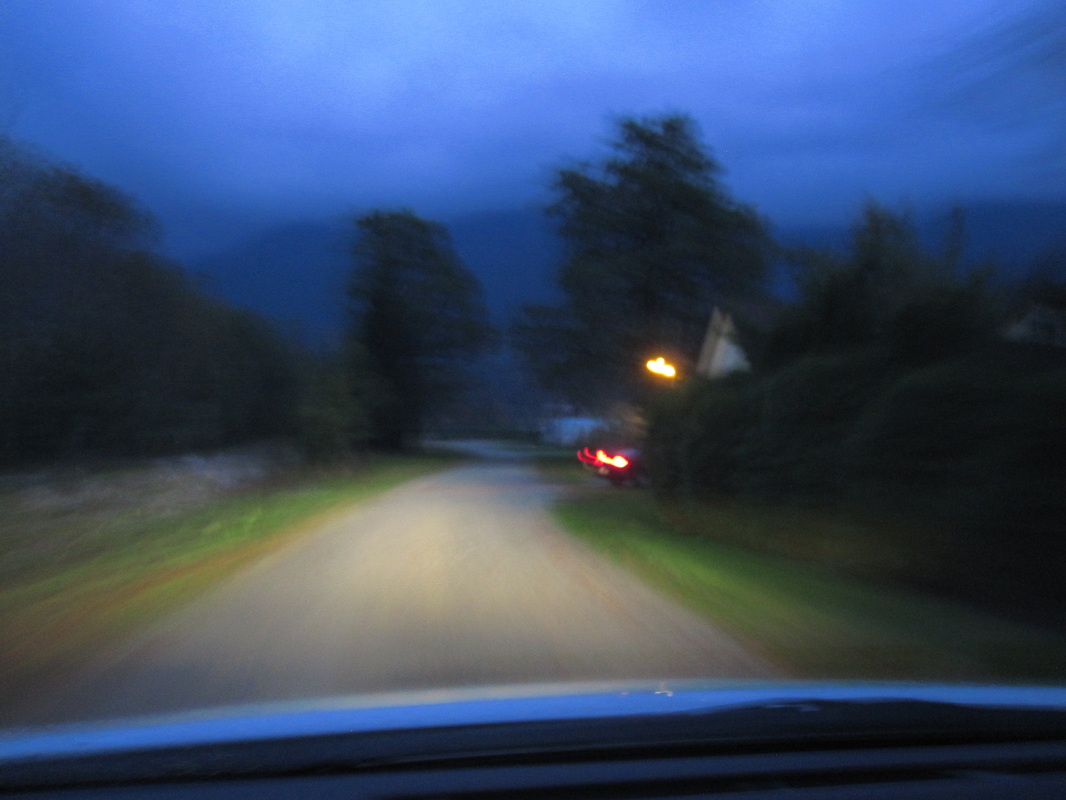
 RSS Feed
RSS Feed